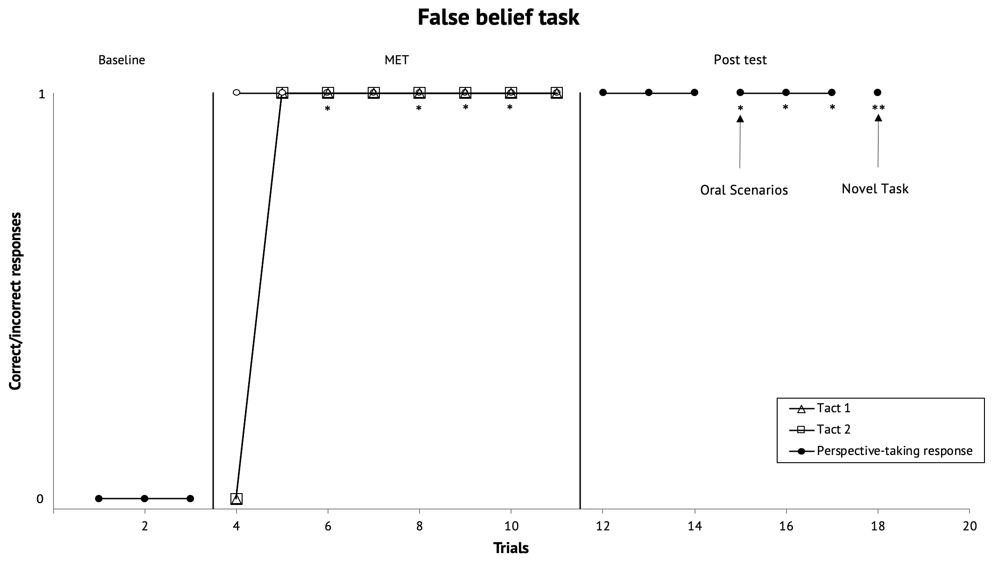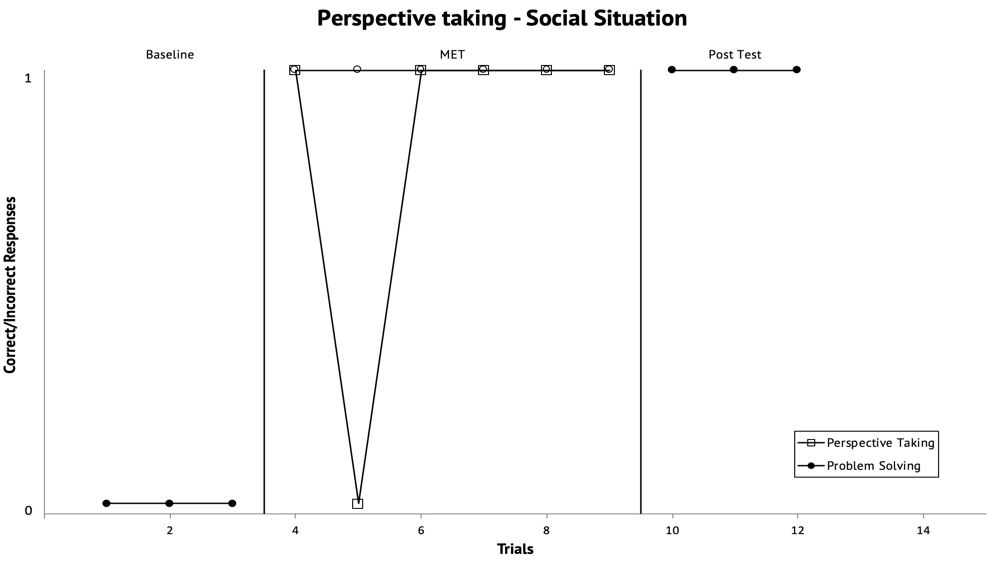Using a perspective-taking skill taught in a contrived setting to teach a perspective-taking problem solving response in a social situation
Daniele Rizzi, Stefano Assetta
Associazione ALBA Onlus – Pescara – ITALY
Introduction
Perspective taking has been defined as “the ability to infer other people’s mental states (their thoughts, beliefs, desires, intentions, etc.), and the ability to use this information to interpret what they say, make sense of their behaviour, and predict what they will do next” (Howlin et al.1999)
Taking the perspective of another person may involve tacting the variables that are controlling another person’s behavior and discriminating between that person’s controlling variables and one’s own (degli Espinosa, 2016)
The speaker may learn by the verbal community to respond verbally to their own private events relying on the public events that accompany the private ones (Schlinger, 2009)Although perspective-taking repertoire such as passing a false belief task may be taught, only applied perspective-taking skills results in improvements in social behavior (Peters and Thompson, 2018)
In this study we first taught a student with ASD to pass 2 false belief tests. Than we used this skill to prompt a problem solving response in a social situation
Methods
Participant and Setting:
1 male students: 17 years old
Verbal utterances of more than 5 words, able to sustain more than 5 exchanges conversations
Previously acquired different kinds of complex verbal behavior
All data were obtained during center-based 1:1 therapy
Data Collection:
A-B with post test
Primary Dependent Variable: trial by trial correct vs incorrect responses for:
- Study 1: response to perspective taking test (false belief tasks)
- Study 2: applied perspective taking – problem solving response in a social situation


Procedures
Baseline:
3 trials with false belief tasks tasks similar to “Sally -Anne” (Baron-Choen et al. 1985) embedding preferred characters (Study 1) or presented in social situations (Study 2)
MET with prompting and fading:
Novel scenarios with the same structure but different contents
Study 1: taught to tact the controlling variables of characters’ behavior while both are contacting the same stimuli (Tact 1) and after the unexpected transfer (Tact 2) using autoclitic frames specifying the sensory modality used to contact or not the environmental stimuli
Study 2: taught to emit the previously acquired perspective taking response and the problem solving response (sharing the changed information with whom did not contact it)
Post Training:
Trials were the same as baseline, not previously taught during training phase.
In Study 1 followed by 3 novel oral scenarios and generalization to a novel false belief task (“Smarties” task, Baron-Choen et al, 1989)
No feedback or error correction provided.
Results
In study 1 student acquired the perspective taking response solving novel exemplars of false belief tests
In study 2, during baseline, failed to generalize the perspective taking response, in accordance with previous research (Peters and Thompson, 2018)
After training showed both applied perspective taking and problem solving responses in social situations.
Discussion
Skinner’s analysis (1945, 1953, 1957) suggests how the verbal community teaches individuals to respond verbally to their own private events relying on the public events that accompany the private ones. Learning to respond to own’s private events may help discriminating private events of others (Schlinger, 2009)
Learning to tact the source of stimulus control of other’s behavior using autoclitic frames may result in acquiring perspective taking responses (degli Espinosa, 2016)
Teaching such response in a contrived setting did not lead to generalization in social interaction
Teaching individuals how to apply perspective taking skills in a way that will be socially maintained may be of greater value for the students (Peters and Thompson, 2018)
